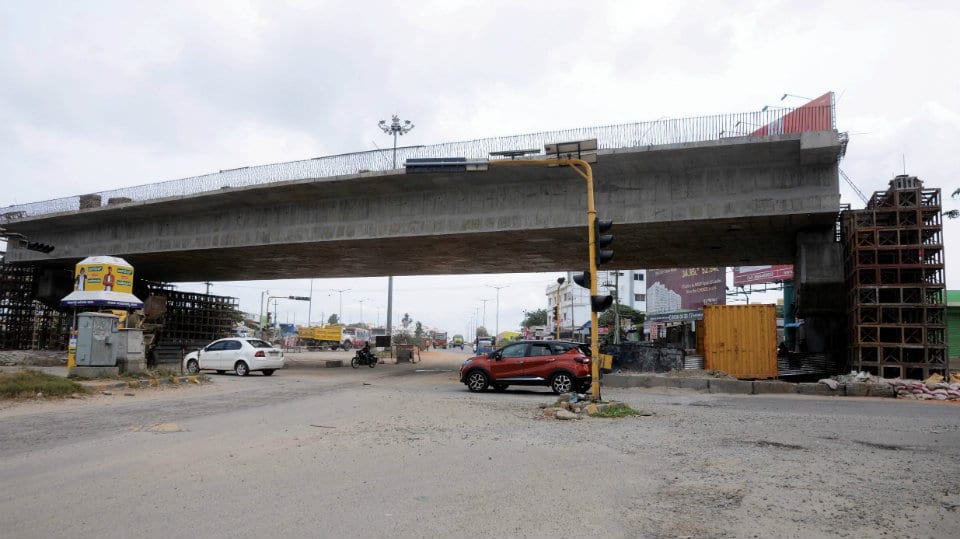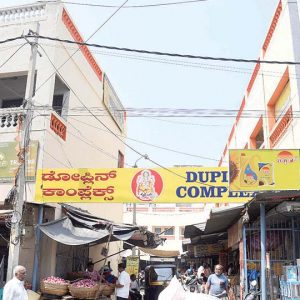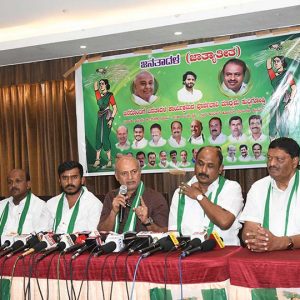By V. N. Prasad
Headlines in Star of Mysore dated Sept. 17 read thus — “Hinkal Flyover not before Dasara”. I was not only amused but also recalled the question I frequently ask: “When do our people learn from mistakes?” I lost no time to call K.B. Ganapathi, Editor-in-Chief, Star of Mysore and engaged in a lengthy discussion that prompted me to write this article.
I understand that there were several obstructions while constructing the Hinkal Flyover and these obstructions were not cleared when the site was handed over to the contractor. Consequent delay in commencement of works must have led to several issues like ‘Extension of Time’, ‘Compensation for idle hours’ etc. In the imbroglio, there must have been several slips between ‘Work Programmes’ and progress.
Assuming the contractor had genuine issues to delay commencement and completion on account of MUDA, there is no point in finishing remaining works in a tearing hurry. Quality of finishing is of utmost importance lest we confront another ‘West Bengal Bridges Story’.
In my view, it is virtually impossible to complete the flyover during Dasara. Never attempt opening the flyover — even to light traffic — before completion of works 100 percent. And I request politicians and public to insist on good quality works — especially finishing works that add to aesthetics.
Completing approach roads to the flyover on either side is tricky, especially the junction between the new section with the old. We have a new BAD example at Paduvarahalli embankment on this very same road where pot holes have developed between the old and new surfaces.
MUDA, please realize that “first time is the best time”. You always accumulate headaches in jobs completed in a hurry.
Poor contracts result in poor public works
Woefully, most public works land up in law courts due to poor inception, poor project planning, poor efforts to minimize time between project approval and award of contract, poor project information in the tender, poor contract clauses, poor liaison works between various government departments in clearing obstructions, poor pre-contract preparations in handing over sites, poor compliance of QAC — ‘Quality Assurance and Compliance’ — poor documentation of DPRs — Daily Progress Reports — poor attention to mandatory quality checks on the field and laboratory and poor conclusion of projects with a good closure report.
All these aspects speak of poor attention to details by government agencies. Apparently Govt departments lack the conscience to sit tight on preparation of project details to leave minimum gaps between the demands of a contract vis-a-vis implementation procedures. I understand that law courts are disappointed at the avoidable waste of time on account of deficiencies in contract administration.
FIDIC — an International Body that instils fear of performance in a contract
Developed countries woke up in early 20th century to bridge lop-sided approach to projects from concept to completion. An expert agency called “The International Federation of Engineers” known as FIDIC — acronym for its French name Fédération Internationale Des Ingénieurs-Conseils — was constituted. It is an international-standard organisation for consulting engineering and construction with its headquarters in Switzerland.
FIDIC emphasises the responsibilities of each and every division of contract management. Individuals, departments and agencies who cause delays and financial losses are rendered criminally culpable.
Clients – be it government or private — per FIDIC need to frame contracts that are fair in every context to the contractors. Contracts free of ambiguities need to be executed so that contractors can work true to contract ethics. Contractors have the innate responsibility to abide by the contract and ensure minimum loss of time and costs to the client.
Quality Assurance is a matter of responsibility of both. The client receives the assurance document from the contractor and the contractor has the responsibility to conduct on-field and laboratory tests at frequencies per contract, strictly under the supervision of the client duly signed by Material Engineer.
Delays beyond the control of contractor and client are well documented with substantiation and daily progress reports are well documented for posterity. Thereby every site activity has ready reference to facts and circumstances should the legal aspects come into picture.
Contract deficiencies and misrepresentation of facts are deemed culpable in the eyes of law. There are over 100 member countries that include a few from Africa. Surely, India is not a member of FIDIC for obvious reasons.
One-sided Government contracts never work
I have come across contracts where clauses are ‘one-sided’. For example, tender drawings are NEVER exhaustive. Therefore, ‘Bills of Quantities’ in the tender are ever suspicious. Many a time, foundation drawings are not precise to site conditions and most of the times, the Government is NOT aware of service lines running underground.
The contractor is made to be responsible for ascertaining site conditions before the commencement of works – thereby allowing the DPR consultant go Scott-free. It is always the DPR consultant who is obliged to conduct exhaustive geological investigations and freeze designs based on findings.
The contractor should conduct cursory verifications. Government contracts have a clause to seek contractor’s assistance to clear obstructions. This reads ridiculous to say the least.
Therefore, once the successful tender-winner submits the EMI, he has virtually walked into the trap of the contract — a ‘chakravyooha’ from where he has no escape — unless he colludes with the department engineers. And this process involves corruption from top to bottom. In the unfortunate situation of contract landing up in law courts, God only help the contractor.
On account of all the probabilities above, soon after receiving the Letter of Commencement, contractors must appoint knowledgeable arbitrators who go through deficient contracts threadbare and start piling reams of letters on client’s table to cover the contractor. Fear of losing money at the end of the contract drives the contractors to cajole engineers, collude and share the spoils of deficient workmanship with engineers.
On the sane side of every contract, following are the essences around which contracts should work: Time Consciousness, Quality Consciousness and Cost Consciousness.
Earlier, I had written about two other very small contracts that dragged for years for lack of fundamentals. They were:
- Road upgradation from Ballal Circle to NIE- Manandavadi Road junction
- Road upgradation from Vivekananda Circle to BEML layout
- Design shortcomings on the Ring Road
For God’s sake, we are in the 21st century. Projects No. 1 & 2 above — less than a kilometre — cannot take 2-3 years. Contractor’s concentration on the project can never sustain with clients being responsible for delays. To add to the woes, contractors are unable to get crushed aggregates due to constant problems in illegal quarrying of stones. With inherent contract deficiencies, QAC takes beating and hurried completion of projects lead to poor quality.
In Project No. 3, in the last 10 years, tunnelling under Railway Bridges has not commenced — an absolute shame. The Outer Ring Road has several other woes. Many junctions with major intersections need ‘Grade Separators’. Else, accidents will be on the increase progressively. Typical example is exit from Hebbal Industrial Area leading to Damden Solarium and Sheshadripuram College junction. Other major junctions include Royal Inn, Columbia Asia Hospital and Nanjangud Road, etc.
As a designer, I am not convinced about lack of land availability at Royal Inn junction. If landing length is not available at the Railway Overpass, take the road alignment over the Railway and land it safely at 4-5% gradient. This is never a valid impasse.
Conclusion
Well, politicians and bureaucrats, make money because they need to sustain. But do not make money as though you are going to die tomorrow. Please visit ‘Putrajaya’; on the outskirts of Kuala Lumpur in Malaysia. It is a beauty beyond belief. Allegedly, there was corruption there too. Probably there was a reasonable proportion — 85% works and 15% pocket. Reverse cannot work.
I appeal to all to think of the country before filling up beds, sofas and flush tanks with currency. Dirty money begets only worries and your children are likely to burn your dirty money with liquor, drugs and other illegal ways of living.
(The author is a designer of roads – highways and townships and has served on projects in East Africa and India as designer and Project Management Consultant. He is a product of UVCE, Bangalore, 1973 batch.)








Recent Comments